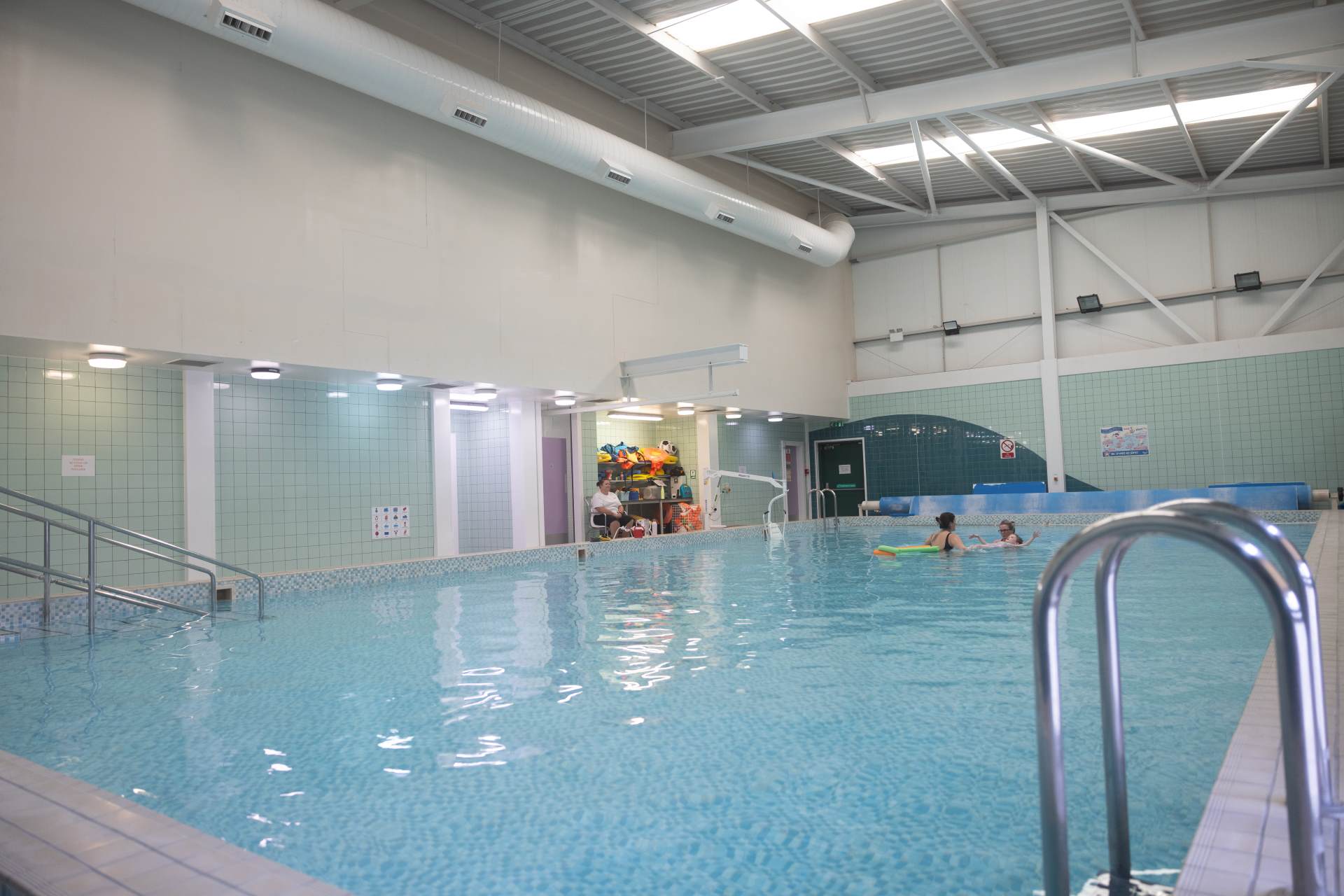Hydrotherapy
We are very lucky to have our own Hydrotherapy pool in school. Hydrotherapy is offered to students with significantly restricted movement, students with PMLD, MLD and Medical and Physical Needs throughout the whole school.
Temperature: The pool water is maintained at between 34°C – 35°C. The pool hall is maintained at 30°C.
Safety: The pool water quality is managed through a UV filtration and chlorine system. Water quality is checked throughout the day by our fully trained Pool Plant Operators ensuring bather safety.
Special Needs, Limited Movement and Physiotherapy
Hydrotherapy is the therapeutic use of the pool to promote motor skills, body awareness, coordination and communication as well as building tolerance to new environments and experiences. They are an integral part of our curriculum for our pupils with special needs and learning difficulties and are designed to accommodate pupils’ individual abilities and disabilities.
Benefits of Hydrotherapy:
Hydrotherapy offers tangible benefits to the health and wellbeing of children and young people with a range of disabilities and health conditions:
- The warmth of the water has an effect on muscle tone and decreased spasticity.
- The child being able to float in the water assists in the movement of their joints – which is either more difficult or painful normally.
- Water pressure and the movement of the child or young person through the water helps to reduce residual lung capacity. This enables more efficient lung function and reduces the risk of chest infections developing.
- Our Physiotherapy team regularly work with children who need this input within the pool and issue physio plans that staff can follow.
- There is a stimulation vocalisation in the water and the interaction within the water can help children to tolerate touch and engage in more eye contact.
Benefits
Hydro is known to have the following benefits:
- Improve communication: Many of our pupils struggle to engage socially with both peers and staff. They find it difficult to communicate with other people outside of highly structured communication sessions. Because hydrotherapy means working with another person, as well as engaging with other pupils in the pool, it can help to improve social behaviours. The nature of sessions conducted within the pool can offer children a structured approach to forming bonds with others and learning social skills while in a relaxed state.
- Regulate emotions and/or behaviours: Research has shown that exercise such as swimming has been proven to help reduce undesirable behaviours in children with special needs. These behaviours can hinder normal social interactions, and therefore a reduction in these behaviours also has social and emotional benefits too.
- It can aid sensory processing: Children with special needs can often struggle with a sensory overload, when one or more of the body’s senses experience over-stimulation from the environment. The sensation of water on the body can help to reduce stress caused by sensory processing disorders, calming and soothing children.
Water Confidence and Exploration
Finally, our children and young people access the pool to help to build water confidence. The children work within the pool on different tasks to help build up their confidence in and around the water.





